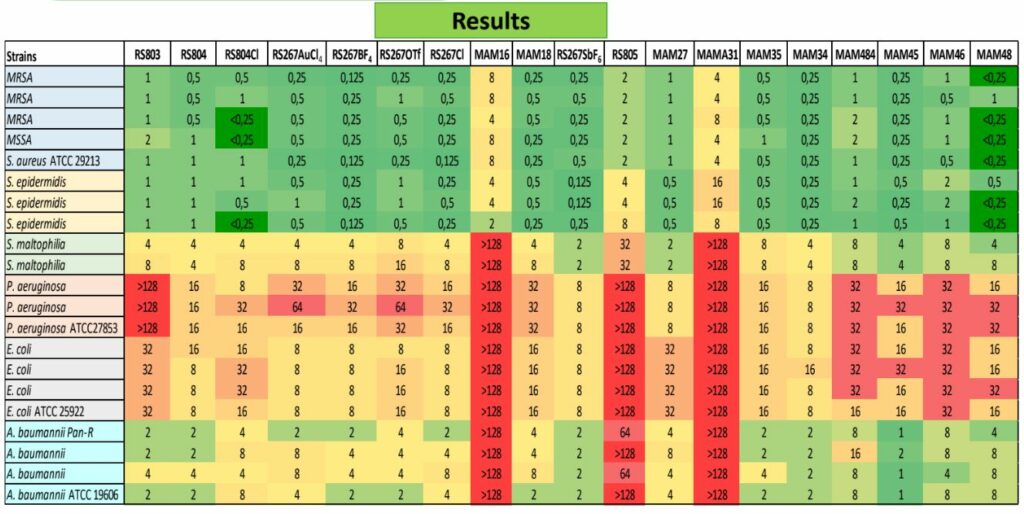Going for Gold: How the Precious Metal Can Help Fight Antibiotic Resistance
A new study says gold-based antibiotics could help treat drug-resistant infections.
Each year, drug-resistant infections are responsible for approximately 700,000 deaths worldwide. If no action is taken, this figure is predicted to increase to 10 million by 2050, as per the World Health Organization’s (WHO) assessment, which classifies antibiotic resistance as one of the most significant public health hazards confronting humanity.
Despite this, the production of new antibiotics has come to a halt, with the scarce antibiotics that are developed mostly being derivatives of existing treatments.
The antibacterial properties of gold have been well-established, thus making gold metalloantibiotics – compounds featuring a gold ion at their center – a promising and novel potential approach.
In order to gain a deeper understanding, Dr. Sara M. Soto González and her colleagues from the Barcelona Institute for Global Health in Spain examined the effectiveness of 19 gold complexes, belonging to the same family but possessing slightly distinct structures, against various multidrug-resistant bacteria isolated from patients.
The research focused on six distinct bacteria, namely Methicillin-resistant Staphylococcus aureus (MRSA), which causes infections of the skin and other types, Staphylococcus epidermidis, linked to catheter-related infections, Pseudomonas aeruginosa, responsible for various infections including pneumonia, Stenotrophomonas maltophilia, known to cause pneumonia and other infections, Acinetobacter baumannii, which leads to blood, urinary tract infections, and pneumonia, and Escherichia coli, causing blood, urinary tract infections, and pneumonia.
Each of the strains examined in the study was identified as multidrug-resistant. Four of these strains, specifically S. aureus, P. aeruginosa, A. baumannii, and E. coli, are classified by WHO as “priority pathogens” concerning antibiotic resistance, which means that they pose a significant risk to human health. S. maltophilia, which is also multidrug-resistant, is increasingly being discovered in the lungs of individuals with cystic fibrosis.
During the tests, 16 out of the 19 (84%) gold complexes exhibited high efficacy against MRSA and S. epidermis.
Furthermore, 16 of the gold complexes also demonstrated efficacy against the other bacteria studied, all of which are classified as gram-negative. These types of bacteria are inherently more resistant to antibiotics, and therefore the development of new treatments is particularly urgent.
Gold complexes deploy a range of methods to eradicate bacteria. They impede enzyme functioning, interfere with the operation of the bacterial membrane, and harm DNA. The significance of this multifaceted mechanism is that it should prevent the development of antimicrobial resistance.

“All of the gold compounds,” points out Dr. Soto González, “were effective against at least one of the bacterial species studied and some displayed potent activity against several multidrug-resistant bacteria.”
The discovery that certain gold complexes were effective against both MRSA and multidrug-resistant A. baumannii is especially noteworthy, given that these are the two primary causes of hospital-acquired infections.
The gold complexes that were examined, classified as gold (III) complexes, are relatively simple to produce and cost-effective. They are also easily modifiable, presenting significant possibilities for drug development, according to the authors.
They conclude: “With research on other types of gold metalloantibiotics also providing promising results, the future is bright for gold-based antibiotics.”
The findings of the study are being presented at this year’s European Congress of Clinical Microbiology & Infectious Diseases (ECCMID) in Copenhagen, Denmark, (15-18 April).
Image Credit: Uli Deck/picture alliance via Getty Images
